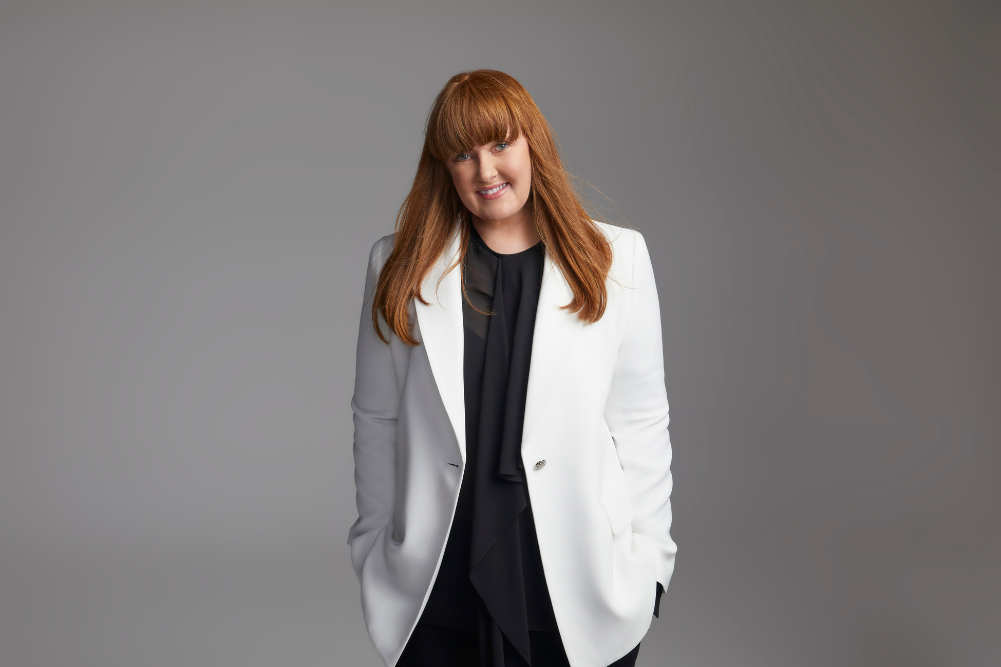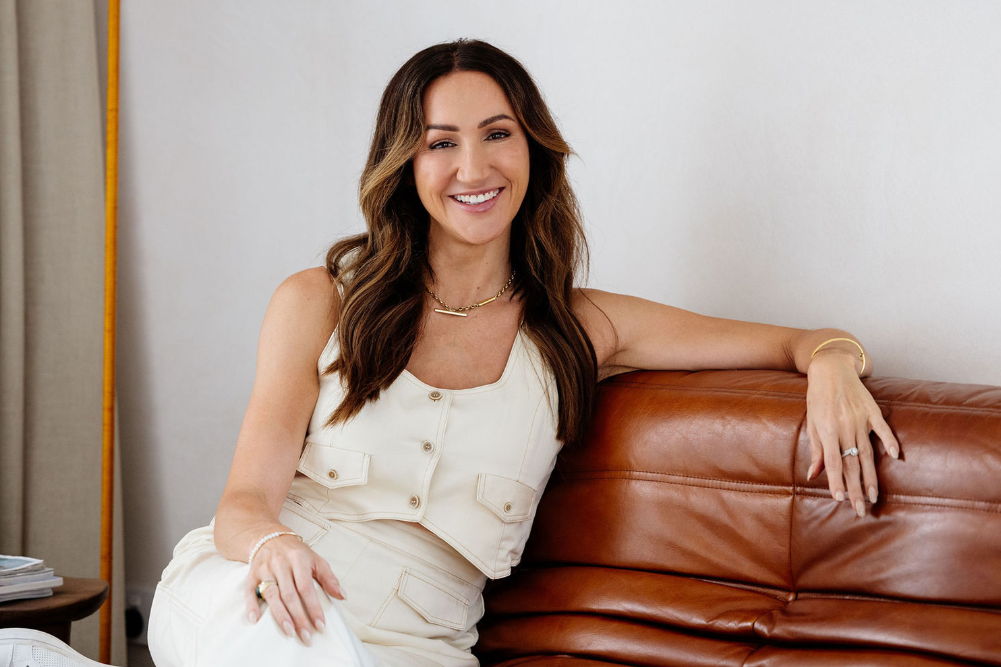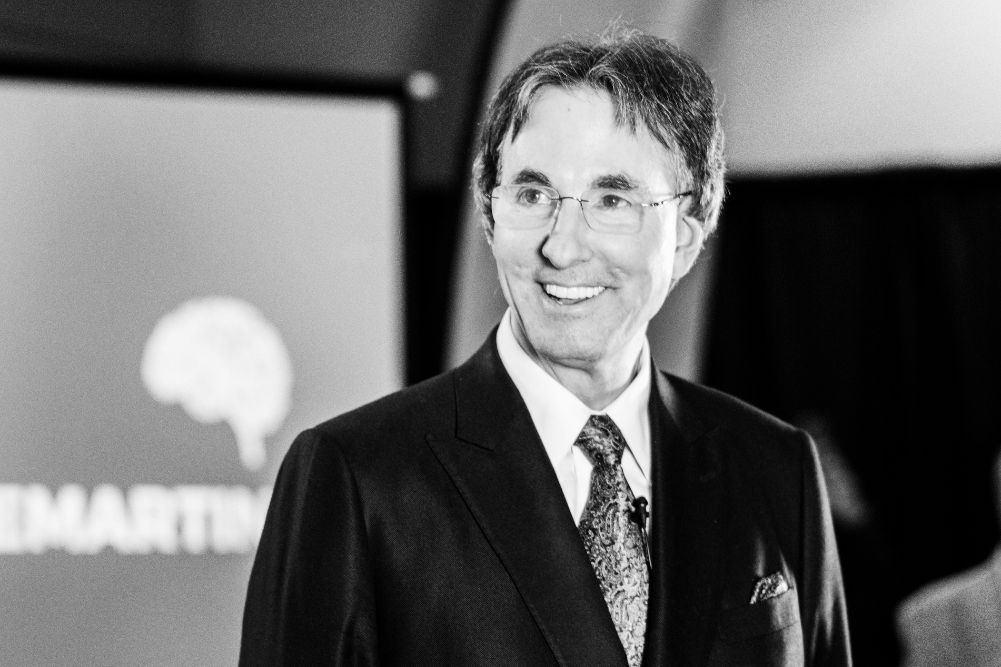We chat to Christina Stevens about her message of love
If I said to you that Christina Stevens’ first memoir, Love: The Saint and the Seeker, published by Hay House, really is all about love then you might be expecting a fluffy, cosy little book. There certainly is warmth and heart in every page but, at the same time, Love is possibly the grittiest spiritual book I have encountered. Christina takes you with frank honesty through the challenges of being a child in a theatrical family and then every difficult step in putting her successful filmmaking career on the line to follow a vision driving her to achieve the almost impossible: filming Mother Teresa of Calcutta.
There is no sugar-coating here, yet Christina shares her journey with real optimism and compassion; a compassion that now fuels her as she advocates for the environment on a regular basis at the United Nations. Christina Stevens’ story is one of personal challenge, commercial success and spiritual courage, but most of all it’s about the truest meaning of love.
Childhood days
As I meet with Christina Stevens, we sit in a private room in a hotel in Sydney with the harbour behind us and we are not all that far from where Christina grew up in the Eastern Suburbs of Sydney.
“It’s tough to have faith in your dreams and visions. I have to tell you when I left Hollywood and went to Calcutta hoping to film Mother Teresa, people, including my business partner, said I was crazy.”
Although she now lives in the US, Christina is the fifth generation in a prominent Australian theatrical family. She is the great granddaughter of Randolph Bedford, Member of Parliament, granddaughter of Madam Bedford-Young (acclaimed as Australia’s first female writer-producer-director) and daughter of “Baby Peggy”, beloved child star of the Australian Theatre once painted by Norman Lindsay in his work The Spanish Dancer. Although illustrious, Christina frankly acknowledges, “I came from a rather dysfunctional family, to say the least.”
One of the most moving and insightful quotes from her book Love is, “The scars of our childhood become the jewels in our crown once they are healed.” I ask her about this and she says, “I bless my mother for what she gave me. She was an alcoholic, but she was a beautiful person when she wasn’t in that strange place.” Characteristically, Christina has a philosophical approach to her childhood observing, “You choose your parents for a reason, so wear the consequences. Look at what you have done to bring that to you and look at where that resides in you. As soon as you do that you can deal with it and move on; it’s not scary any more.”
In her book, Christina shares the scars of childhood with simple candour, and part of that was her schooling. She was ready to leave school early as she calmly observes, “I wanted to leave the country so I had to be able to make enough money to make a living to be able to leave.”
Advertising angel & fab filmmaker
Christina left school and immediately worked for a young John Singleton making his way in the advertising game. By the time she left Australia at age 19, she had already won a Golden Lion award for a TV commercial she had made.
Arriving in the UK with an impressive showreel behind her already, Christina started work with Ogilvy & Mather in London, beginning a global advertising career that saw her work for Young & Rubicam in New York, Australia, Hong Kong, Paris and then back to New York. From there, she moved to Los Angeles with Ogilvy & Mather. She was directing commercials in LA and the company had effectively set up a film company around her.
“You can’t love the environment unless you love yourself first.”
Christina recalls, “I had 83 people working for me” — she pauses to give weight to what comes next — “but I have to touch the work and I wasn’t touching the work. At the same time, this awakening was happening for me. It was bursting inside me. I had just bought my ranch and I was writing. I didn’t want to be selling people things they didn’t need. There was so much more I had to do, but I didn’t know what it was. At the time I was just writing down what was happening to me.”
Soon, Christina left Ogilvy & Mather and started a production company with a partner. She became an independent filmmaker making commercials and documentaries. One documentary she made was for Steven Spielberg’s Starbright Foundation, a foundation aimed at empowering seriously ill children and teens to address the challenges that accompany prolonged illness. One person saw the film and immediately wrote a cheque to the Foundation for US$7 million.
Christina has achieved many amazing things in this life, but her biggest project was awaiting her.
Mother Teresa
The book Love: The Saint and the Seeker is a memoir that revolves around the story of how Christina came to film and talk with Mother Teresa of Calcutta (now Kolkata). Very few people were granted the opportunity to film this saintly lady, but you can read the story of how that filming came to be in the book; here, we will revel in some of the backstory to the book itself.
Christina’ determination to film Mother Teresa was founded in a vision that came to her while meditating. She reflects, “It’s tough to have faith in your dreams and visions. I have to tell you when I left Hollywood and went to Calcutta hoping to film Mother Teresa, people, including my business partner, said I was crazy.”
There were times to follow when Christina thought it was all “crazy” herself, but she persisted and, despite initial denials, Mother Teresa finally permitted the filming to take place. The filming happened in 1993 and, following many a miracle, a profound and beautiful film resulted. Then, in 1997, Mother Teresa passed away and after her death Christina experienced another vision in which Mother Teresa asked her, ”When are you going to write?”
“Don’t be afraid to follow your dreams, to express your love, to live.”
According to Christina, “That was an order. I immediately started writing and writing and writing and I immediately got a publishing contract and we were going to make a coffee table book out of it and I thought, ‘No, I have to write a book that’s meant to be read.’ Coffee table books are looked at and sit on the coffee table and few people read them cover to cover. I had to say, ‘No, you can’t have this contract; you can’t publish this book. It’s not ready, it’s not right, it’s not time.’” This was in 1997 not long after Mother Teresa’s death.
So Christina rewrote the book as she knew it needed to be. She recalls, “So I finally finished it, had an agent and then no one wanted it. Everyone had their Mother Teresa biography and they thought this was a Mother Teresa biography. So I thought if no one wants it I’m not going to hit my head up against a brick wall. So I put the manuscript in the garage and thought I would let it die.”
The book remained a file on her computer and then in 2013 Christina was drawn back to it. “I thought, there is so much going on in the world right now, I have to get this message out,” she says. “So I sat down and I was writing like there was no tomorrow. It took about three weeks of absolutely intense, obsessive writing, doing nothing else, and then I thought, ‘I’m done.’ So I spellchecked and checked all punctuation and I pressed ‘Save’ and the title of it was, Be the One.”
That was when apparent disaster struck.
Beyond Be the One
To understand the significance of the title Be the One, we need to visit a small section of the book. After a meeting with Mother Teresa on one occasion, Christina was in a taxi and, seeking inspiration, had opened a small paperback book that Mother Teresa had just given her. She writes, “She [Mother Teresa] had handwritten one phrase in pen and ink under a woodcut illustration of Jesus wearing the crown of thorns. The printed words beneath it read: ‘I looked for the one that would comfort me and I found none.’ And Mother had written beside it, ‘Be the One’. Gandhi had said, ‘Be the change you wish to see.’ And here was Mother Teresa echoing his words in her own way. Be everything you wish to see.”
So the title was settled and the book was written but, as Christina reveals, everything was not settled at all. Christina says, “The minute I pressed ‘Save’ the entire manuscript turned to numbers. I knew if I touched something I could ruin everything permanently. So I took it to a computer technician and they kept it for days and then said, ‘We’ve never seen anything like this before and we can’t get it back. We can’t get it back for you.’”
After so much work on such a precious resource, Christina was devastated but not despairing. “I was a little teary and upset with myself and then I thought, well of course it has happened for a reason, I don’t know what the reason is just yet, but it has happened for a reason. I didn’t do anything and then a week-and-a-half later I woke up one morning and I thought, ‘The title was wrong. It’s got to be Love — that’s the title. I sat down and I started rewriting all over again, but it was very, very different because in changing the title I knew what I was meant to do. I knew where I was meant to go; it gave me such a strong direction. That’s when I really opened myself and poured it all out in there.”
The rest is publishing history and now we have the marvellously alchemical memoir of a passionate writer and filmmaker, Love: The Saint and the Seeker, to show for it. According to Christina, “It had to be called Love. Be the One is kind of instructional, but I didn’t want to write an instructional book. It’s a bigger picture and love stretches across everything. You can’t love the environment unless you love yourself first and I am very much about the planet.”
Which leads us neatly to Christina’s other driving passion.
The planet
Christina tells me, “The numbers are in and we are in trouble. Fossil fuels should be a thing of the past. We are just not loving our trees or our birds or our bees. It’s not sustainable. What we need to do comes back to love. It has to start with the source and the source is you, and it has to begin with you taking care of your loved ones and let it spread out from that. Nature is our strength, it is our power, and we are not respecting it. Every time I buy something I say, ‘Don’t give me a receipt, save the trees.’
“It’s about the choices that we make every single day. We should have trees growing on the roof of this hotel. We should be using grey water. We would be using far less energy to cool and heat the building. It’s massive what we should be doing, and everyone should be doing it.”
The more time you spend with Christina you realise that a positive outlook is always on the horizon. She adds, “I’m optimistic because what we hear happening is the tiny percentage; we don’t hear about the good things happening out there. There are so many entrepreneurs out there creating companies where they give back. We are in a time of unity consciousness now — no more polarity consciousness — and people are opening and opening. I am so energised and delighted to see the people in Australia who are energised by this topic. I think Australians are moving forward in a really good way.”
A duck at the United Nations
Typically, Christina has taken her passion for the environment and translated it into concrete action. She is a former Board Member of ECO (Earth Communications Office) and media consultant for Greenpeace US and the American Council for Renewable Energy. She serves on the Special Projects Committee of the Directors’ Guild of America and is also on the Board of Directors of the Captain Planet Foundation, whose mission is to inspire youth to work as environmental stewards.
Christina also speaks regularly at the United Nations, but in her usual wry and pragmatic way observes, “I’m an odd duck at the UN. I’m not like everyone else there. I don’t prepare my talks. I was invited to give the opening address to World Energy Day at the World Energy Forum in a room as large as the general assembly hall and I thought, ‘What am I going to talk about?’ It was World Energy Day, so all the member nations were coming in to give their energy reports about their infrastructure and everything they are doing regarding their energy and moving into renewable energy.
“I thought, ‘I’m not going to talk about that. They already know all that.’ So I decided I would talk about their energy and I told them the story about Mother Teresa and how I sat down with her and how we together turned her No into a Yes. It was the energy exchange and the working to just be there and be with each other and not have an agenda but to have the intention of walking out with a win-win situation for both of you. That’s what I talked to them about, their personal energy. I’m an odd duck, but somehow the doors are open to me.”
No fear
Time has flown as I sit chatting with Christina. Her easy familiarity and sharp mind make conversation a breeze. Yet I know she has pressing engagements, so I ask her if she has one final message for people and, no surprises, it centres on love but also love’s polar opposite: fear.
Christina says, “I’m always a storyteller. I tell stories. The book [Love] was written to change your system. Inspiring someone is just telling them that there is no fear and not to be afraid of anything in the world. There is no fear. Fear is the opposite of love. There is no time to be afraid of anything. I know; I had to deal with fear. That book was 20 years in the making and it wasn’t going to come out a second before I had dealt with my fear. The reason we are not moving forward more rapidly in the world is because we are afraid. Don’t be afraid. If you are feeling afraid, ask yourself, ‘What’s the worst thing that can happen?’ It’s probably already happening. Don’t be afraid to follow your dreams, to express your love, to live.”
There is a powerful statement in Christina’s book: “You can’t experience on the outside what you don’t have on the inside.” Now she rests back in her chair and with calm certainty echoes the wisdom of that statement to me as she says, “The minute you have a fear of failure, you will fail. Love keeps coming back to you and it dissipates any fear that you might have. It begins with you loving you. Don’t be afraid of yourself, your innermost desires, your dreams. If you adore yourself, people will adore you.”








